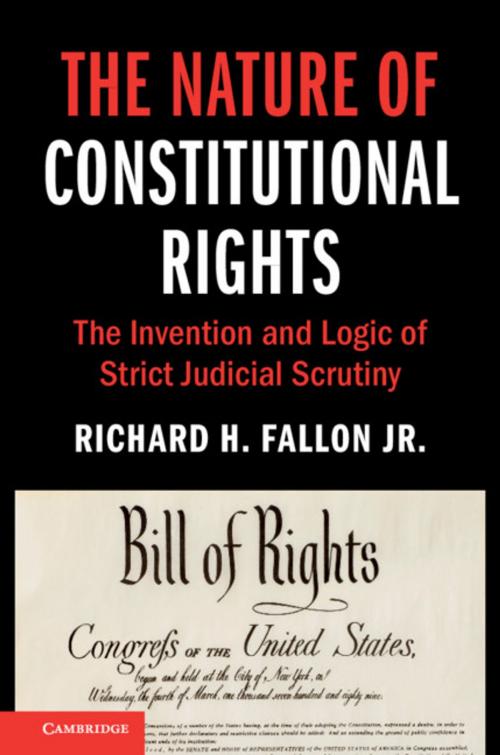The Nature of Constitutional Rights
The Invention and Logic of Strict Judicial Scrutiny
Nonfiction, Reference & Language, Law, Constitutional, Social & Cultural Studies, Political Science| Author: | Richard H. Fallon Jr. | ISBN: | 9781108651875 |
| Publisher: | Cambridge University Press | Publication: | March 14, 2019 |
| Imprint: | Cambridge University Press | Language: | English |
| Author: | Richard H. Fallon Jr. |
| ISBN: | 9781108651875 |
| Publisher: | Cambridge University Press |
| Publication: | March 14, 2019 |
| Imprint: | Cambridge University Press |
| Language: | English |
What does it mean to have a constitutional right in an era in which most rights must yield to 'compelling governmental interests'? After recounting the little-known history of the invention of the compelling-interest formula during the 1960s, The Nature of Constitutional Rights examines what must be true about constitutional rights for them to be identified and enforced via 'strict scrutiny' and other, similar, judge-crafted tests. The book's answers not only enrich philosophical understanding of the concept of a 'right', but also produce important practical payoffs. Its insights should affect how courts decide cases and how citizens should think about the judicial role. Contributing to the conversation between originalists and legal realists, Richard H. Fallon, Jr explains what constitutional rights are, what courts must do to identify them, and why the protections that they afford are more limited than most people think.
What does it mean to have a constitutional right in an era in which most rights must yield to 'compelling governmental interests'? After recounting the little-known history of the invention of the compelling-interest formula during the 1960s, The Nature of Constitutional Rights examines what must be true about constitutional rights for them to be identified and enforced via 'strict scrutiny' and other, similar, judge-crafted tests. The book's answers not only enrich philosophical understanding of the concept of a 'right', but also produce important practical payoffs. Its insights should affect how courts decide cases and how citizens should think about the judicial role. Contributing to the conversation between originalists and legal realists, Richard H. Fallon, Jr explains what constitutional rights are, what courts must do to identify them, and why the protections that they afford are more limited than most people think.















